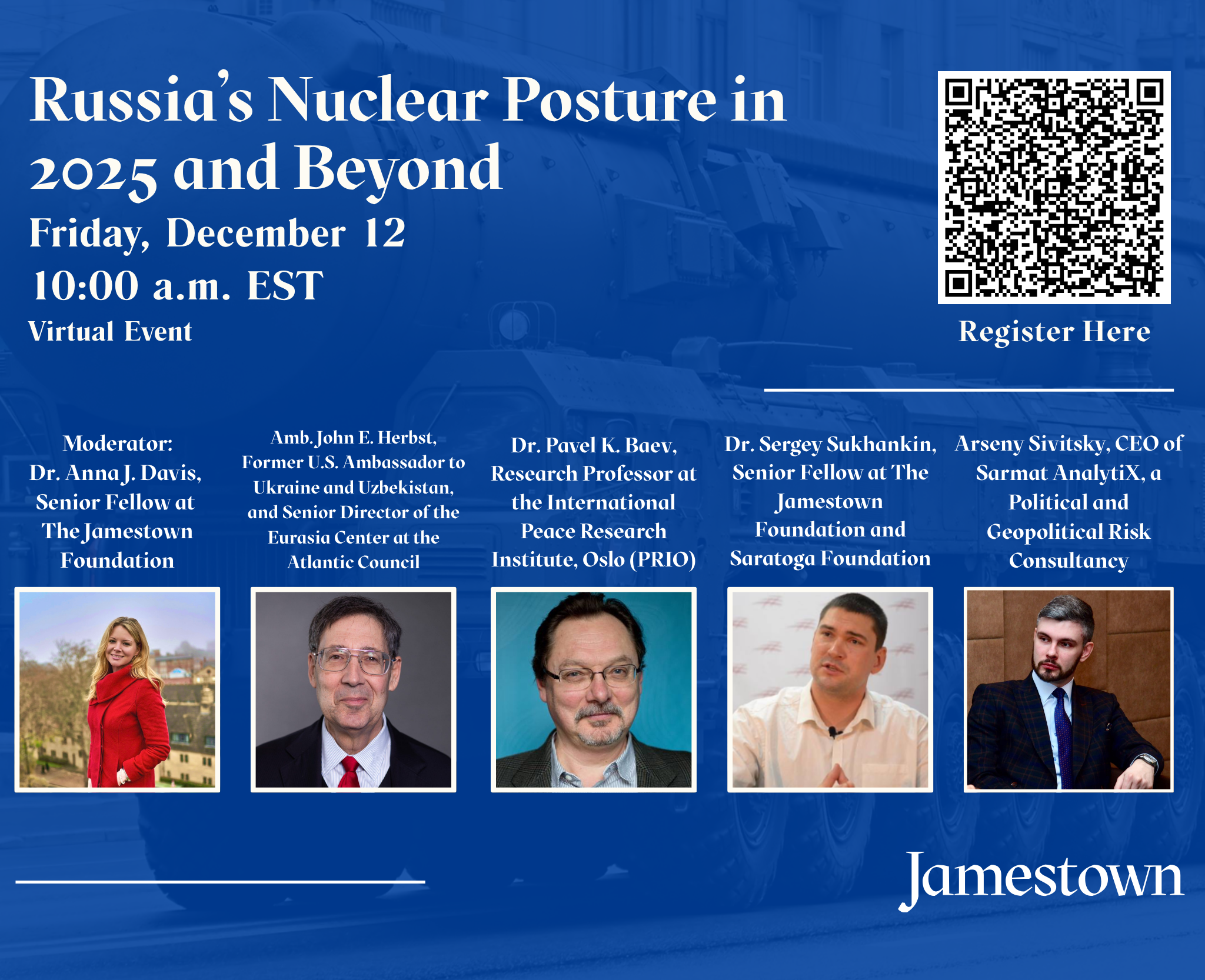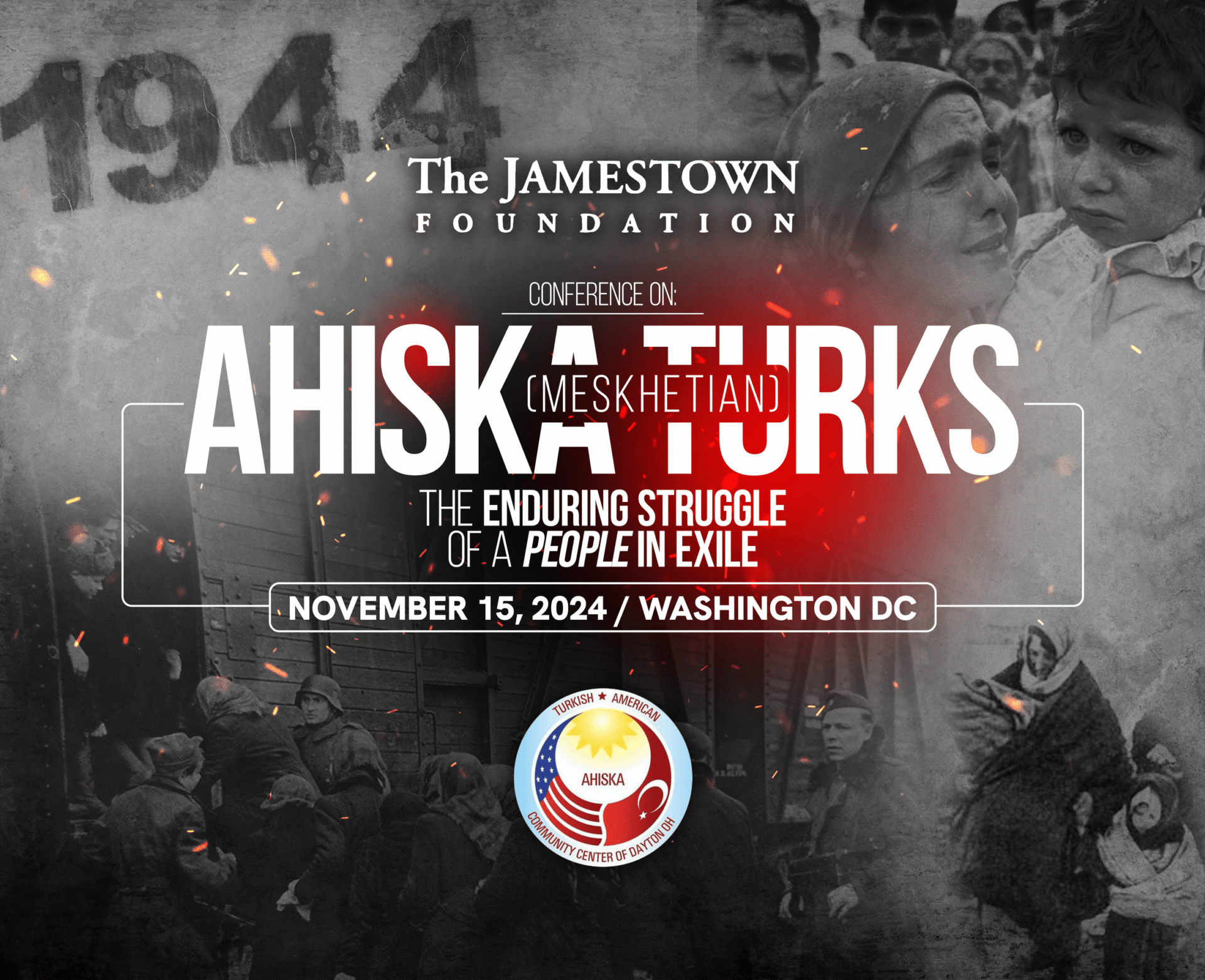
Russia’s Search for a Role in the Taliban’s Afghanistan
Russia’s Search for a Role in the Taliban’s Afghanistan
The Jamestown Foundation was proud to present an online webinar event, “Russia’s Search for a Role in the Taliban’s Afghanistan,” to take place Tuesday, August 24 at 11 AM.
Since the Taliban captured Kabul on August 15, regional powers such as Russia have scrambled to protect their interests in Afghanistan. The rapid U.S. withdrawal leaves Russia–along with China, Iran and Pakistan–in a preeminent position to influence facts on the ground in the war-torn country. Moscow has maintained ties to the Taliban leadership, having hosted them in Russia several times over the past three years. At the same time, Russia fears that extremists will infiltrate and create instability in the formerly Soviet republics of Central Asia that border Afghanistan, a region in which Moscow holds significant interests and military capabilities. As the facts on the ground rapidly change, what shape will the Kremlin’s Afghan policy take?
To answer this question and more, The Jamestown Foundation invited Jamestown Distinguished Senior Fellow Paul Goble, defense analyst and Novaya Gazeta columnist Pavel Felgenhauer, and the founding chairman of the Central Asia-Caucasus Institute of the American Foreign Policy Council, S. Fredrick Starr.
Featuring
Pavel Felgenhauer
Defense Analyst and Columnist, Novaya Gazeta
Paul Goble
Distinguished Senior Fellow, The Jamestown Foundation
S. Fredrick Starr
Chairman, Central Asia-Caucasus Institute
Moderator
Glen Howard
President, The Jamestown Foundation
Participant Biographies
Paul Goble is a longtime specialist on ethnic and religious questions in Eurasia. Most recently, he was director of research and publications at the Azerbaijan Diplomatic Academy. Earlier, he served as vice dean for the social sciences and humanities at Audentes University in Tallinn and a senior research associate at the EuroCollege of the University of Tartu in Estonia. While there, he launched the “Window on Eurasia” series. Prior to joining the faculty there in 2004, he served in various capacities in the U.S. State Department, the Central Intelligence Agency and the International Broadcasting Bureau as well as at the Voice of America and Radio Free Europe/Radio Liberty and at the Carnegie Endowment for International Peace. He writes frequently on ethnic and religious issues and has edited five volumes on ethnicity and religion in the former Soviet space. Trained at Miami University in Ohio and the University of Chicago, he has been decorated by the governments of Estonia, Latvia and Lithuania for his work in promoting Baltic independence and the withdrawal of Russian forces from those formerly occupied lands.
***
Dr. Pavel E. Felgenhauer is a Moscow-based defense analyst and columnist for Novaya Gazeta. He served as senior research officer in the Soviet Academy of Sciences, from where he received his Ph.D. Dr. Felgenhauer has published widely on Russian foreign and defense policies, military doctrine, arms trade and the military-industrial complex. He comments regularly in local and international media on Russia’s defense-related problems.
***
S. Frederick Starr is the founding chairman of the Central Asia -Caucasus Institute and Silk Road Studies Program, a joint transatlantic research and policy center affiliated withthe American Foreign Policy Institute (AFPC) in Washington (where Starr is Research Professor) and the Institute for Security and Development Policy in Stockholm. Dr. Starr is Distinguished Fellow for Eurasia at AFPC.
Starr has focused on the challenge of reopening continental-wide transport passing through Central Asia and Afghanistan, which he sees as a key to success in Afghanistan itself. This issue was the subject of a series of articles between 2000 and 2008 and of a book, The New Silk Roads, published in 2007. For writings that have had a direct impact on policy see The Key to Success in Afghanistan [with A. Kuchins et al] and Afghanistan Beyond the Fog of Nation Building: Giving Economic Strategy a Chance.
Starr is a frequent commentator on the affairs of the region, and the author of numerous articles in journals including Foreign Affairs, The National Review, Far East Economic Review, and op-eds in various leading American and international newspapers. His most recent book, Lost Enlightenment: Central Asia’s Golden Age from the Arab Conquest to Tamerlane, has been widely acclaimed. In this book on the history of the region between the 8th and 11th centuries, he argues that Central Asia was the center of the world.
Starr was the founding Chairman of the Kennan Institute in Washington, and served as Vice President of Tulane University and President of the Aspen Institute and of Oberlin College (1983-94). He was closely involved in planning the University of Central Asia and the Azerbaijan Diplomatic Academy and is a trustee of the Nazarbayev University in Kazakhstan. He earned his PhD in History at Princeton, MA at King’s College, Cambridge, and his BA at Yale, and holds five honorary degrees. Starr is also a founding member of the Louisiana Repertory Jazz Ensemble of New Orleans and founded the Greater New Orleans Foundation, the single largest non-governmental sponsor of post-Katrina recovery in that city. He has written four books on New Orleans, including New Orleans Unmasqued, Southern Comfort, and Inventing New Orleans: The Writings of Lafcadio Hearn.


